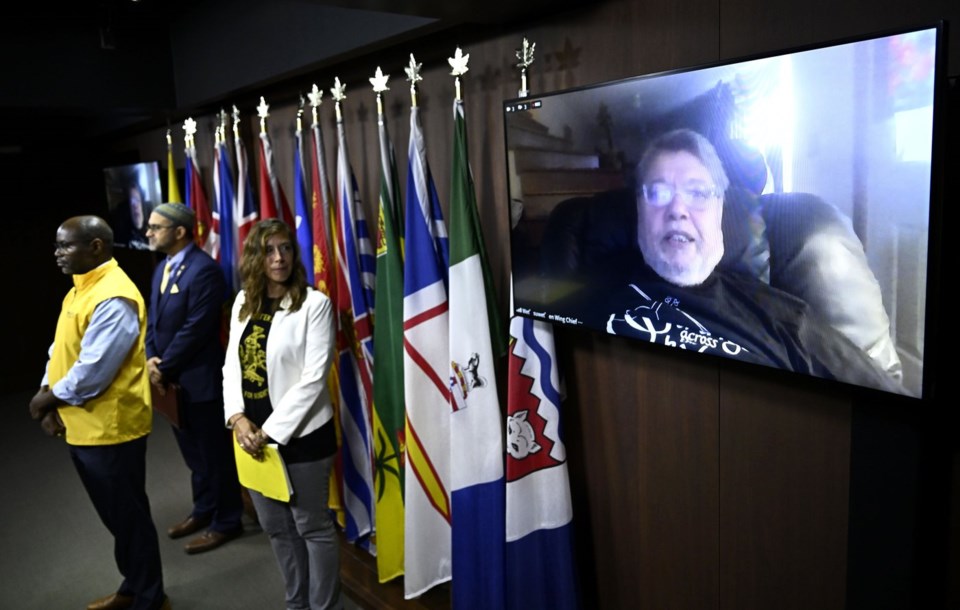OTTAWA — Amnesty International called for the release of a First Nations chief who is serving two months of house arrest Wednesday, naming him Canada's first prisoner of conscience.
Chief Dsta'hyl was arrested in 2021 for breaching a court order not to impede construction of the Coastal GasLink liquefied natural gas pipeline, and is currently confined to house arrest for contempt of court.
The chief, who also goes by the name Adam Gagnon, represents the Likhts'amisyu clan within the Wet'suwet'en Nation.
"The extraction industries have been protected by the government and encouraged to just keep raping the land," Dsta'hyl said at a press conference, where he appeared by video from his home.
"It's up to us as Wet'suwet'en people to protect the land," he told reporters Wednesday.
Amnesty argued Canada has unjustly confined the chief, and others who defend their land and rights during a climate emergency.
The group considers a prisoner of conscience to be a non-violent person who had been jailed or restricted solely because of their political, religious or other conscientiously held beliefs, or their identity.
"We're standing before you today in a moment of urgent and profound injustice," said David Matsinhe, the Canadian chapter's policy director.
"His conviction and home imprisonment sends a chilling message to all Indigenous peoples in Canada: defending your rights and ancestral land is a crime and you will be punished for it."
This is the first time Amnesty International has recognized a prisoner of conscience within Canada, and it is seeking his "immediate and unconditional release."
The office of Public Safety Minister Dominic LeBlanc referred a request for comment on Amnesty's allegation to the B.C. prosecution services as well as the Public Prosecution Service of Canada.
The PPSC responded to say the matter doesn't fall under its jurisdiction.
Amnesty acknowledged that it often designates prisoners of conscience in countries where people are arbitrarily detained and tortured in jail.
But the group insists Dsta'hyl's case also meets the threshold. The groups called the court order the chief violated unjust, and said it bans activities that should be protected under the global human right to peaceful assembly and freedom of expression.
The group's America director Ana Piquer further suggested that the pipeline, which has since been completed, is not a legitimate project given the climate-change crisis.
Supporters of the pipeline argue it will give countries a less-emitting fossil fuel option to countries currently powered by coal.
Dsta'hyl says the pipeline has disrupted salmon habitats his people have tried for decades to conserve, in an area that has already faced extensive clear-cutting and industrial expansion. He said Ottawa stands to make millions with little benefit to Indigenous people.
This report by The Canadian Press was first published July 31, 2024.
Dylan Robertson, The Canadian Press



